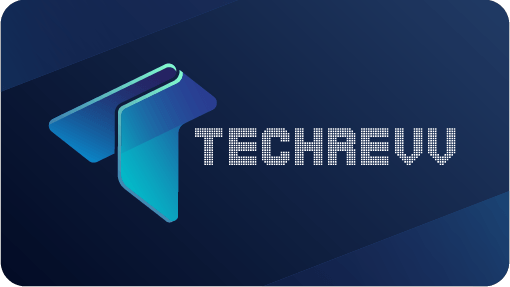Online learning has evolved tremendously in recent years, yet misconceptions persist. Some believe that online courses lack interaction, are not as credible as traditional education, or are only suitable for certain subjects. We aim to enlighten readers with accurate information and dispel misconceptions about online learning. We will explore topics like flexibility, course quality, and student engagement. By exploring these key areas, we hope to demonstrate that online learning can indeed deliver a high-quality education that is flexible, engaging, and interactive.
Join us on this journey as we break down online education myths and provide real examples to showcase the tremendous potential of platforms like Teachable, Udemy, Coursera, and many others. Get ready to explore the world of online learning and discover the endless opportunities it presents!
Common Myths about Online Learning
Myth 1: Online learning is not as effective as traditional classroom learning
Contrary to popular belief, online learning can be just as effective, if not more so, than traditional classroom learning. While the environment may differ, online courses employ innovative techniques to deliver engaging and interactive content. Students can actively participate and learn independently through videos, quizzes, discussion forums, and virtual classrooms.
Additionally, online courses often offer personalized feedback, allowing students to identify areas for improvement. This individualized attention can foster a deeper understanding of the subject and promote self-motivated learning. With technological advancement, online learning has become an immersive experience, providing ample opportunities for students to interact with instructors and fellow learners.
Myth 2: Online courses lack credibility and recognition
Another common misconception about online learning is that it is not as credible or recognized as traditional education. However, many reputable institutions and organizations offer online courses that are accredited and recognized globally. Platforms like Coursera partner with top universities and institutions to provide high-quality courses that carry weight in the academic and professional world.
Furthermore, online learning platforms often provide certification upon course completion, which can be added to your resume or LinkedIn profile. These certifications prove your acquired skills and knowledge, enhancing your credibility and employability. Employers today recognize the value of online education and are increasingly open to hiring candidates who have completed reputable online courses.
Myth 3: Online learning is only for technical or non-academic subjects
One prevailing myth is that online learning only suits technical or non-academic subjects. However, online platforms like Teachable, Udemy, and Coursera offer various courses across various fields, including business, arts, humanities, sciences, and more. Whether you want to learn coding, digital marketing, photography, psychology, or even philosophy, you can find a course tailored to your interests and goals.
These platforms provide comprehensive learning materials, including video lectures, reading materials, assignments, and assessments. Instructors often incorporate practical exercises and real-world examples to ensure students grasp the concepts effectively. So, whether pursuing a hobby or enhancing your professional skills, online learning has something to offer everyone.
Examples of Successful Online Learning Platforms
Teachable: A Platform for Creating and Selling Online Courses
Teachable is a popular online learning platform that allows individuals, entrepreneurs, and organizations to create and sell online courses. It provides a user-friendly interface, making course creation accessible to anyone, regardless of technical expertise. Teachable offers features like customizable course branding, multimedia integration, and interactive quizzes to enhance the learning experience.
With Teachable, instructors can set pricing, control course access, and engage with students through discussion forums and messaging. This platform empowers individuals to share their expertise and monetize their knowledge while learners benefit from various courses taught by industry professionals.
Udemy: A Marketplace for Online Courses on Various Topics
Udemy is one of the largest online learning platforms, featuring thousands of courses across diverse subjects. It is a marketplace where instructors can create and sell their courses, covering everything from programming and design to personal development and music. With over 35 million learners worldwide, Udemy offers a vast library of courses to cater to different learning styles and interests.
One of Udemy's standout features is its rating and review system, which allows learners to evaluate the quality of courses before enrolling. This transparency ensures you can make an informed decision when selecting a course. Furthermore, Udemy frequently offers discounts and promotions, making learning affordable and accessible to a wider audience.
Coursera: An Online Platform Offering Courses from Top Universities and Institutions
Coursera stands out as an online learning platform that partners with prestigious universities and institutions to offer courses taught by renowned professors. With a mission to provide universal access to the world's best education, Coursera offers a wide range of courses, including free and paid options. Learners can audit courses for free or opt for a certificate upon completion.
One key advantage of Coursera is the ability to earn accredited degrees and specializations. These programs provide a structured curriculum, often several months, allowing learners to delve deeper into a subject and acquire specialized knowledge. Coursera's partnerships with top institutions ensure that the courses offered are high quality and provide valuable credentials.
Other Examples of Online Learning Platforms
While Teachable, Udemy, and Coursera are well-known platforms, numerous other online learning platforms cater to different learning preferences and subjects. Some notable examples include:
- LinkedIn Learning: Formerly known as Lynda.com, LinkedIn Learning offers a vast library of courses taught by industry professionals. It focuses on professional development and covers various topics, including business, technology, creative skills, etc.
- Khan Academy: Khan Academy is a non-profit organization that provides free educational resources and courses. It offers a comprehensive curriculum for K-12 subjects and test preparation materials for standardized exams.
- FutureLearn: FutureLearn is a UK-based platform offering diverse courses from leading universities and cultural institutions. It emphasizes social learning, encouraging learners to engage in discussions and collaborate with peers.
These examples highlight the various online learning platforms with unique features and offerings. By exploring these platforms, you can find the one that aligns with your learning goals and preferences.
Benefits of Online Learning
Online learning offers numerous benefits, making it an attractive option for individuals seeking flexibility, affordability, and personalized learning experiences. Let's explore some of these advantages:
- Flexibility: Online learning allows you to learn at your own pace and schedule. You can access course materials whenever and wherever suits you, eliminating the constraints of fixed class schedules.
- Affordability: Online courses are often more affordable compared to traditional education. Without physical infrastructure, institutions can offer courses at lower costs. Additionally, you save on commuting and accommodation expenses, making education more accessible.
- Diverse Course Selection: Online learning platforms offer various courses across various disciplines. Whether you want to learn a new skill, pursue a hobby, or advance your career, you can find a course tailored to your interests and goals.
- Interaction and Collaboration: Contrary to the misconception that online learning lacks interaction, many platforms provide ample opportunities for collaboration and engagement. Discussion forums, virtual classrooms, and peer feedback foster community and enhance the learning experience.
- Self-Paced Learning: Online courses allow you to learn at your own pace, ensuring you thoroughly understand the subject matter before moving on. This flexibility accommodates different learning styles and allows for deeper comprehension.
- Global Accessibility: Online learning transcends geographical boundaries, allowing learners worldwide to access the same educational resources. This global accessibility fosters cultural exchange and diverse perspectives.
Tips for Choosing the Right Online Course or Platform
With the multitude of online courses and platforms available, it can be overwhelming to choose the right one. Here are some tips to help you make an informed decision:
- Define Your Goals: Determine what you want to achieve through online learning. Are you looking to acquire specific skills, pursue a hobby, or advance your career? Clarifying your goals will guide you in selecting the most suitable courses or platforms.
- Research and Read Reviews: Before enrolling in an online course, take the time to research and read reviews. Look for feedback from previous learners to gauge the quality and effectiveness of the course. Platforms like Udemy and Coursera provide ratings and reviews to assist in your decision-making process.
- Consider Course Structure: Assess the course structure and curriculum to ensure it aligns with your learning preferences. Some courses may be self-paced, while others may have fixed start and end dates. Choose a structure that suits your schedule and learning style.
- Check Instructor Credentials: Verify the credentials and expertise of the instructors. Look for instructors who have relevant experience and qualifications in the subject matter. This ensures that you learn from industry professionals who can provide valuable insights.
- Take Advantage of Free Resources: Many online platforms offer free courses or trial periods. Take advantage of these opportunities to explore the course content and teaching style before committing to a paid course. This allows you to assess if the course meets your expectations.
By following these tips, you can make an informed decision and maximize your online learning experience.
Conclusion and the Future of Online Learning
As we end this interactive blog, it is clear that online learning has come a long way and has proven its worth. The myths surrounding online education have been debunked, and its benefits and opportunities have been showcased through real-life examples.
Online learning has revolutionized education by allowing individuals to learn at their own pace, access a diverse range of courses, and connect with experts from around the world. It has opened doors for lifelong learning and professional development, empowering individuals to acquire new skills and stay relevant in an ever-changing world.
With technological advancements and the increasing demand for flexible learning options, the future of online education looks promising. We can expect to see further innovations in course delivery, interactive features, and personalized learning experiences.
So, embrace online learning, break free from the myths, and embark on a journey of knowledge and growth. The possibilities are endless, and the world of online learning is waiting to be explored. Start your learning journey today and unlock a world of opportunities!
KNOW MORE





